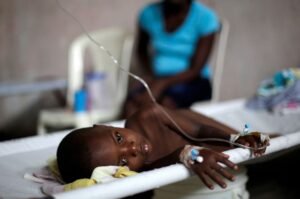The US has issued a fresh travel advisory to its citizens, warning against travel to Nigeria over the unavailability of healthcare services and the increasing rate of kidnapping, terrorism, and armed gangs, among other crimes.
The travel recommendation published as part of the United States’ security review serves as a reference for travellers planning journeys to Africa, with some countries designated as high-risk areas.
In addition to Nigeria, the US issued a global travel alert warning for 11 other African countries: Somalia, Libya, Burkina Faso, South Sudan, Democratic Republic of Congo, Uganda, Burundi, Mauritania, Guinea-Bissau, Niger, and Chad.
The recommendation divided countries into four categories, with level four “do not travel” being the most severe and level three “reconsider travel” indicating a considerable danger.
In a statement posted on its website, the US Mission in Nigeria advised its nationals to reconsider any planned trip to Nigeria, warning that all sites pose a “significant security risk”.
While citizens may still travel to Nigeria, the US has labelled 18 states as the most severe and advised its citizens to avoid them entirely.
Among other things, it advised its citizens to avoid Borno, Yobe, Kogi, and northern Adamawa states due to terrorism and kidnapping; Bauchi, Gombe, Kaduna, Kano, Katsina, Sokoto, and Zamfara states due to kidnapping; and Abia, Anambra, Bayelsa, Delta, Enugu, Imo, and Rivers states (except Port Harcourt) due to crime, kidnapping, and armed gangs.
The statement read: “Reconsider travel to Nigeria due to crime, terrorism, civil unrest, kidnapping, armed gangs, and inconsistent availability of health care services. Some places in Nigeria have an increased risk. Overall, all locations carry significant security risks.
“Violent crime is common in the country. This includes armed robbery, assault, carjacking, kidnapping, hostage-taking, roadside banditry, and rape.
“Kidnappings for ransom happen often. They primarily target dual national citizens visiting Nigeria and U.S. citizens perceived as wealthy. Kidnapping gangs have also stopped victims on interstate roads.
“There is a risk of terrorist violence in Nigeria. This includes terrorist attacks and other activities.
Terrorists continue to plan and carry out strikes in Nigeria. Terrorists work with local gangs to increase their reach.
They may strike with little or no warning, targeting retail malls and malls, marketplaces, hotels, houses of worship, restaurants and bars, schools, government offices, transit hubs, and public gathering places.
“Gangs and crime: Civil unrest and armed gangs are active in parts of Southern Nigeria. This is especially true in the Niger Delta and Southeast regions. Armed crime and gangs are common in the area. Crimes include kidnapping and assaults on Nigerian security services.
“U.S. citizens should not expect the same level of health care to be available in Nigeria as they do in the United States. Nigerian medical facilities are generally not equipped to U.S. or European standards. Many medicines are not available. This includes common medications for diabetes or asthma.
“Bring enough over-the-counter and prescription medicines to last your entire stay in Nigeria. Update vaccinations to include all standard vaccinations, plus yellow fever, meningitis, typhoid, cholera, hepatitis A, hepatitis B, and a polio booster.”
“All visitors should take malaria prophylaxis. Nigeria is at high risk for malaria. Counterfeit pharmaceuticals are a common problem. Hospitals often expect immediate cash payment for health services. Most hospitals and doctors do not accept U.S. health insurance.
“Emergency services like those in the United States or Europe do not exist.
“Blood supply is often unreliable. Ambulance services are unreliable, have poor equipment, and often do not have trained paramedics.
“We strongly recommend getting traveller’s insurance, including medical evacuation insurance, before travelling.”











